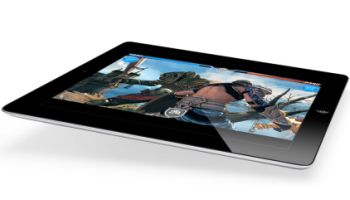

Apple continues to build up its list of equipment suppliers after it added Sharp to its roster of companies it uses to produce the popular iPad tablet, according to the Wall Street Journal.
The WSJ reported that Sharp will produce the LCD screens for the next-generation version of the device as Apple seeks to diversify the number of manufacturers it uses. The decision comes as Sharp looks to broaden its LCD business and Apple fights a number of patent suits with Samsung, which also supplies components for Apple’s products.
“This would allow Sharp to count on a more stable sales volume and would help its technology gain more attention,” Mizuho Investors Securities analyst Nobuo Kurahashi told the WSJ, though he noted it would be “a stretch” to posit Apple’s move came from the legal troubles stemming from patent suits with supplier Samsung. Securities and investment banking group Jefferies said in a research note that Sharp will provide panels for iPads, iPhones and iTVs.
“We believe Apple has purchased $500m (£321m) to $1bn (£642m) in equipment, Sharp and Apple have modified the IGZO (indium, gallium, zinc) technology to make much-improved displays, and Sharp and Apple may jointly produce OLED panels with a new production technology that has led to significant yield improvements,” the company wrote.
“The Sharp relationship will enable Apple to diversify away from Samsung and gain additional display capacity with leading-edge technology,” it added. “Given Apple is fronting the capital spending, we also see these panels being procured at good prices, which means better-than-expected margins.”
As alleged by Apple, Samsung has made its Galaxy phones and computer tablet work and look like Apple’s products through widespread patent and trade dress infringement. Apple claims Samsung has even misappropriated Apple’s distinctive product packaging.
“Instead of pursuing ind
According to IT research firm IDC, Samsung grabbed the No. 1 worldwide smartphone position from Apple, selling more than 23 million units in the third quarter for the first time ever, fuelled by the phone maker’s new Galaxy S II line and handsets powered by its own bada platform. The company, which commanded 20 percent market share for Q3, sold over 10 million Android-based Galaxy S II handsets through April and October in a slow, country-by-country rollout.
American space agency prepares for testing of Boeing's Starliner, to ensure it has two space…
As UK and Europe develop closer military ties, European Commission says it will invest €1.3…
Zuckerberg seeks to revive Facebook's original spirit, as Meta launches Facebook Friends tab, so users…
Notable development for Meta, after appeal against 2021 WhatsApp privacy fine is backed by advisor…
First sign of shake-up under new CEO Lip-Bu Tan? Three Intel board members confirm they…
Trump's nominee for SEC Chairman, Paul Atkins, has pledged a “rational, coherent, and principled approach”…